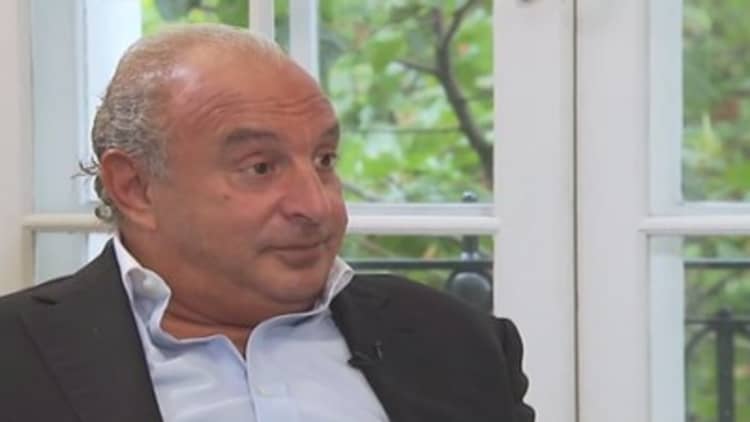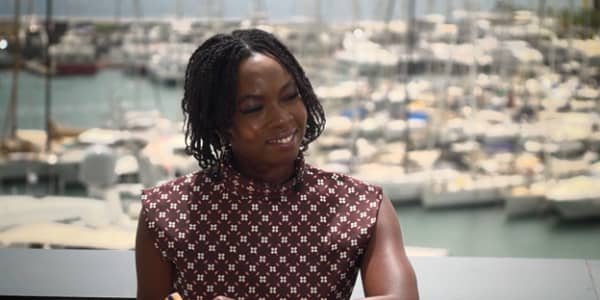
Philip Green, the man famed for his attempt to take over Marks & Spencer and his successful overhaul of British Home Stores (BHS), has told CNBC that he does not actually like department stores.
Philip Green came to national attention in 2000 when he bought the struggling department store BHS for £200 million and completely re-branded the shop and helped turn its fortunes around. He has also tried to take over at Marks & Spencer. However, Green told CNBC Meets' Tania Bryer that he was not a fan of department stores.
"To be honest with you actually, I don't like department stores," he said. "I had a chain of department stores back in 1994 which was Lewis's and Owen Owen, only for a short time, and I found department stores personally difficult."
(Read more: Kate Moss will lead China charge: Topshop's Philip Green)
Speaking about how his acquisition of BHS came about, Green said, "I don't know, it just turned up...I didn't go looking, I can't even remember how it came about. It was one of those things that turned up. I'd never even been, I think I'd been in this building once in my life. And had a look at it, I thought it was a product fix, which is what I like doing, and bought it. And off we went."
Philip Green's BHS posted revenue of £699 million ($1.1 billion) in 2012 from its 179 stores, according to Mintel Research, who cited a Companies House return. Speaking of the turnaround the department store has undergone in the past decade, Green commented, "It was a long slog for the first, you know, couple of years: of fixing it, going back, showing people how to buy things, re-editing, and that was the start of the journey."
Green's main business interest, the Arcadia Group, not only owns BHS, but also several high street clothing retailers, such as Burton, Dorothy Perkins, Evans, Miss Selfridge, Topman and Topshop.
Mintel Research did warn however that despite Green's turnaround of BHS, there were tricky years ahead.
(Read more: Stop attacking Topshop over Bangladesh: CEO)
"Arcadia has underperformed its peers both in the short and long term. For example, adding BHS to the Arcadia figures for 2008 shows that overall sales are unchanged since then. One may counter that 2007/08 was the last year of the boom, but since then Next's UK sales have grown 14 percent," Mintel said.
Green has chosen to focus more on fashion brands like Topshop and Topman in recent years. Mintel said, "The businesses are clearly highly successful and we would suggest that their sales together must be of the order of £1 billion ($1.59 billion), around a third of group sales." Arcadia group saw operating profit of £225 million ($358 million) for the financial year 2011-2012, up £35 million ($55 million) from the previous year. The group's next set of financial results are released on Thursday 14 November.
Still, Green knows the importance of department stores, having utilized the Nordstrom store in the U.S. to sell Topshop items. He recently announced plans to expand this deal from 14 Nordstrom stores to 42.
Recently, both the Guardian and Independent newspapers have suggested that Green is now ready to sell BHS, and that South African billionaire Christo Wiese is set to team up with former Asda head Andy Bond to attempt to takeover the company.
The full program - CNBC Meets: Sir Philip Green - will air on Wednesday 13November.






